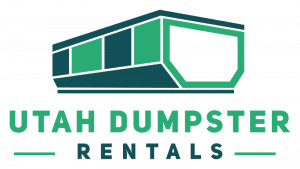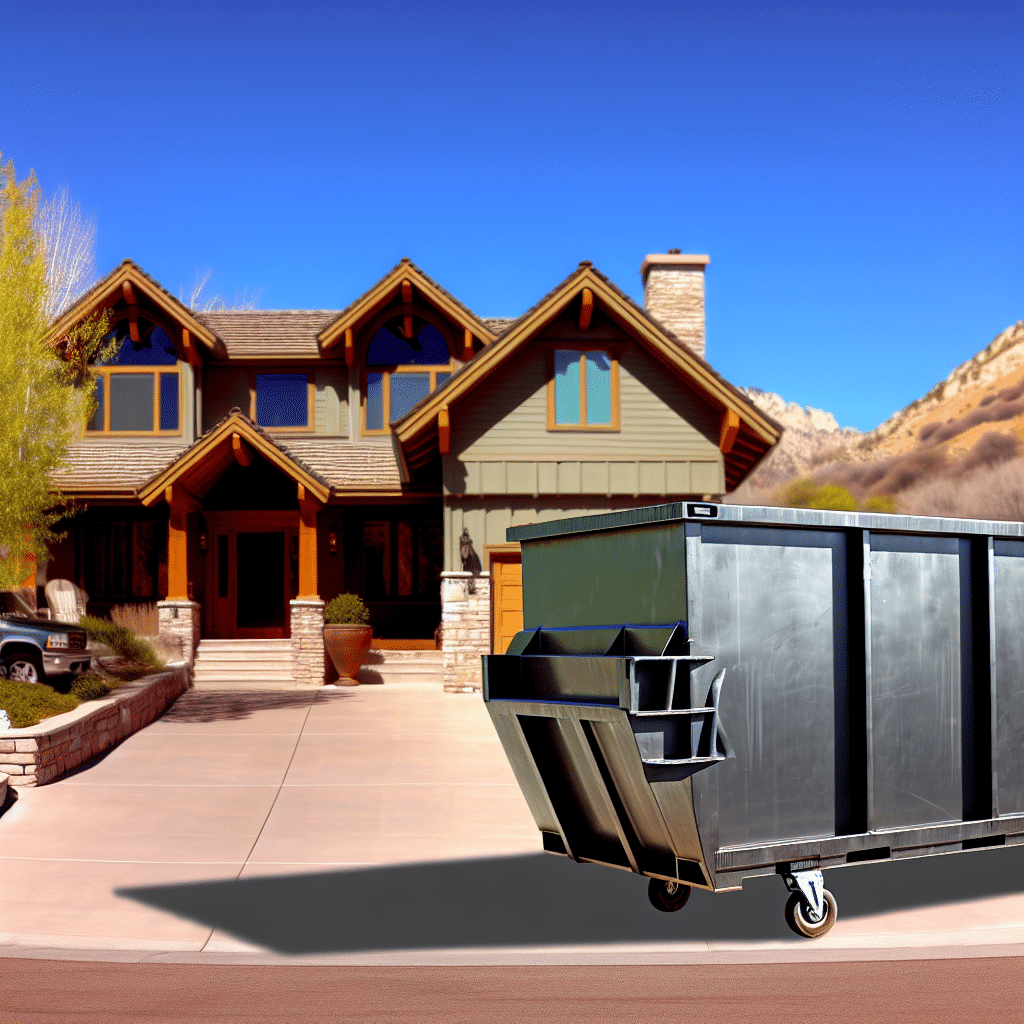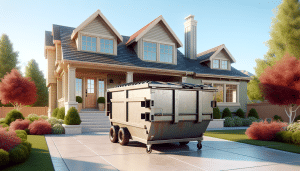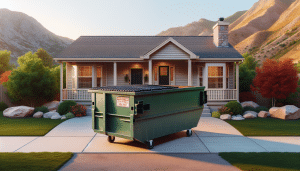If you are a homeowner tackling a cleanout, remodel, or landscaping overhaul, roll off dumpster rental prices can feel confusing and unpredictable. We at Utah Dumpster Rentals know that mystery can stall your project, so this article breaks down what to expect and how to budget. By explaining common cost drivers, size options, and money saving tips, we help you make confident decisions. This guide is written for homeowners in our service area who want clear pricing information and practical next steps.
Contents
- 1 How roll off dumpster pricing works
- 2 Typical Dumpster Sizes and what they cost
- 3 Key factors that affect your final price
- 4 Common cost components explained
- 5 How to estimate your project needs
- 6 Haul fees, tonnage, and weight limits
- 7 What items can raise your price or require special handling
- 8 How to save money on your dumpster rental
- 9 Permits, placement, and driveway protection
- 10 Seasonal pricing and booking strategies
- 11 Why choose our company for your dumpster rental needs
- 12 Common questions homeowners ask before renting
- 13 Next steps and how to get an accurate quote
- 14 Contact us to compare prices and reserve a dumpster
- 15 Ready to get started?
How roll off dumpster pricing works
Understanding roll off dumpster pricing starts with recognizing that there is more than one line item on your invoice. Typically, your rental price will include the base rental fee, delivery and pickup charges, and a haul fee that accounts for disposal costs based on weight or material type.
Furthermore, many companies add extra charges for permits, extended rental periods, or oversized items. We explain each component so you can compare quotes accurately and avoid surprises during your project.
Typical Dumpster Sizes and what they cost
Dumpster sizes vary, and so do their prices. Small projects like minor cleanouts often fit in a 10 cubic yard container, whereas full renovations or major cleanouts may require a 20 or 30 cubic yard dumpster. Larger containers such as 40 cubic yard units suit construction debris and bulky materials.
Size affects both the base rental and the disposal fee because larger dumpsters can carry more weight and require larger trucks. We help you match your project to the right size so you do not pay for unused capacity or end up needing a second trip.
Key factors that affect your final price
Several variables influence your final bill, and the top ones include weight limits, material type, and rental duration. For instance, heavy materials like concrete and dirt quickly consume weight allowances, while lighter household debris uses space more than weight.
Also, the delivery distance and timing can change costs. Busy seasons and short notice requests often raise prices, so planning ahead lets you lock in better rates and avoid rush fees.
Common cost components explained
To make sense of quotes, you need to know what each charge covers and why it appears on your invoice. We break down the components so you can see what you are paying for and where you might save.
- Base rental fee The initial charge for the dumpster itself, usually set by size and rental period.
- Delivery and pickup Fees for bringing the dumpster to your property and removing it when you are done.
- Haul fee Disposal costs charged per ton or by material type, reflecting what the landfill or recycling center charges.
- Overweight charges Additional fees when your load exceeds the included weight allowance for your rental.
- Permit and placement Costs for any required street or driveway permits and special placement needs that complicate delivery.
Each of these components can vary by provider, so getting a detailed, itemized quote allows you to compare apples to apples. We recommend asking upfront how many days the base rental covers and what the per ton pricing is for disposal.
How to estimate your project needs
Estimating accurately prevents under or overbuying. Start by sorting the project into categories such as wood, drywall, household junk, or heavy materials. Then, consider volume and weight: measure piles or use room counts to determine cubic yard needs.
We also suggest a simple rule of thumb for homeowners: a 10 yard dumpster usually handles a garage cleanout, a 20 yard dumpster covers kitchen or major bathroom remodels, and a 30 yard dumpsters fits whole house renovations. However, for projects with heavy debris you should estimate by weight rather than volume.
Haul fees, tonnage, and weight limits
Haul fees often make up a significant portion of your final cost, especially for heavy waste. Landfills and transfer stations charge by ton, and rental companies pass those costs on to you via haul fees. Therefore, knowing your weight allowance and typical ton pricing helps you plan.
Exceeding weight limits results in overweight fees that can spike your total. To avoid surprises, ask us how many tons are included and what the cost per additional ton will be. We will also help you understand which materials carry higher disposal rates, such as asphalt or concrete.
What items can raise your price or require special handling
Certain items either cost more to dispose of or are not allowed in standard dumpsters. Appliances, electronics, mattresses, tires, and hazardous materials often require special handling, recycling, or disposal permits. These items can trigger extra charges and sometimes separate pickup arrangements.
We advise separating these materials before ordering a dumpster and asking us about proper disposal options. That way you reduce surprises and handle regulated items responsibly and legally.
How to save money on your dumpster rental
Saving on dumpster rentals is about planning and making smart choices. First, right size your dumpster so you do not pay for space you do not use. Secondly, separate recyclables and hazardous materials to lower haul fees where possible.
In addition, schedule both delivery and pickup during regular business hours to avoid premium scheduling fees. We also recommend requesting a detailed, itemized quote and asking about discounts for extended rentals or repeat customers.
Permits, placement, and driveway protection
Permits and placement can affect both the convenience and the cost of your rental. If the dumpster sits on public property such as a street, a municipal permit is often required. We help you determine whether a permit is needed and can advise on how to apply for one if you prefer to handle it yourself.
Protecting your driveway with boards or special pads helps avoid damage and potential liability. Our drivers are experienced at placing containers in tight spaces, and we provide guidance on the best placement to minimize risk and maintain access for vehicles and foot traffic.
Seasonal pricing and booking strategies
Dumpster rental demand fluctuates with seasons and local construction cycles, which influences pricing. Spring and summer often see higher demand as homeowners tackle outdoor projects and renovations. Booking early secures the equipment and rates you want.
Additionally, consider midweek delivery to reduce scheduling fees and avoid weekend surcharges. We recommend locking in rentals at least one to two weeks in advance for peak seasons to guarantee availability and avoid rush pricing.
Why choose our company for your dumpster rental needs
We pride ourselves on transparent pricing, prompt service, and clear communication. Serving homeowners across our service region, we focus on making rentals straightforward and predictable so you can concentrate on your project rather than logistics.
Moreover, we provide flexible rental periods, honest quotes, and local knowledge about disposal regulations and recycling options. When you work with us, you gain a partner who understands how to keep projects on time and on budget.
Common questions homeowners ask before renting
Homeowners frequently ask about price estimates, acceptable materials, and how long they can keep the dumpster. We encourage you to prepare a list of questions and measurements so we can give you the most accurate quote possible.
Another frequent concern is how to avoid overweight fees. Our advice is to separate heavy materials and consider renting a smaller dumpster with an additional lightweight second pickup if your load is mostly bulky but light. We are happy to walk through your project and recommend the best option.
Next steps and how to get an accurate quote
To get the most accurate quote, gather details about your project size, material types, and preferred rental dates. Then Contact Us with that information so we can calculate the base fee, haul fees, and any potential permits or additional charges.
We always provide itemized estimates and explain options that can lower your cost. Whether you need a short term rental for a small cleanout or a longer term unit for a major renovation, we will tailor a solution that suits your timeline and budget.
Contact us to compare prices and reserve a dumpster
Your best move is to reach out with project details so we can deliver a clear, itemized quote and reserve a dumpster for your dates. We operate throughout the region and can advise on size, placement, and any permit needs specific to your location.
Our friendly team will walk you through pricing options and scheduling, helping you avoid costly surprises and ensuring the dumpster arrives when you need it. Call us today to start planning and get a fair price for your project.
Ready to get started?
Call us by phone # 801-877-0684 or Request a Free Quote.




